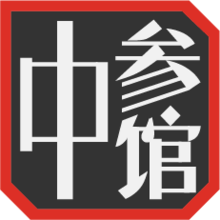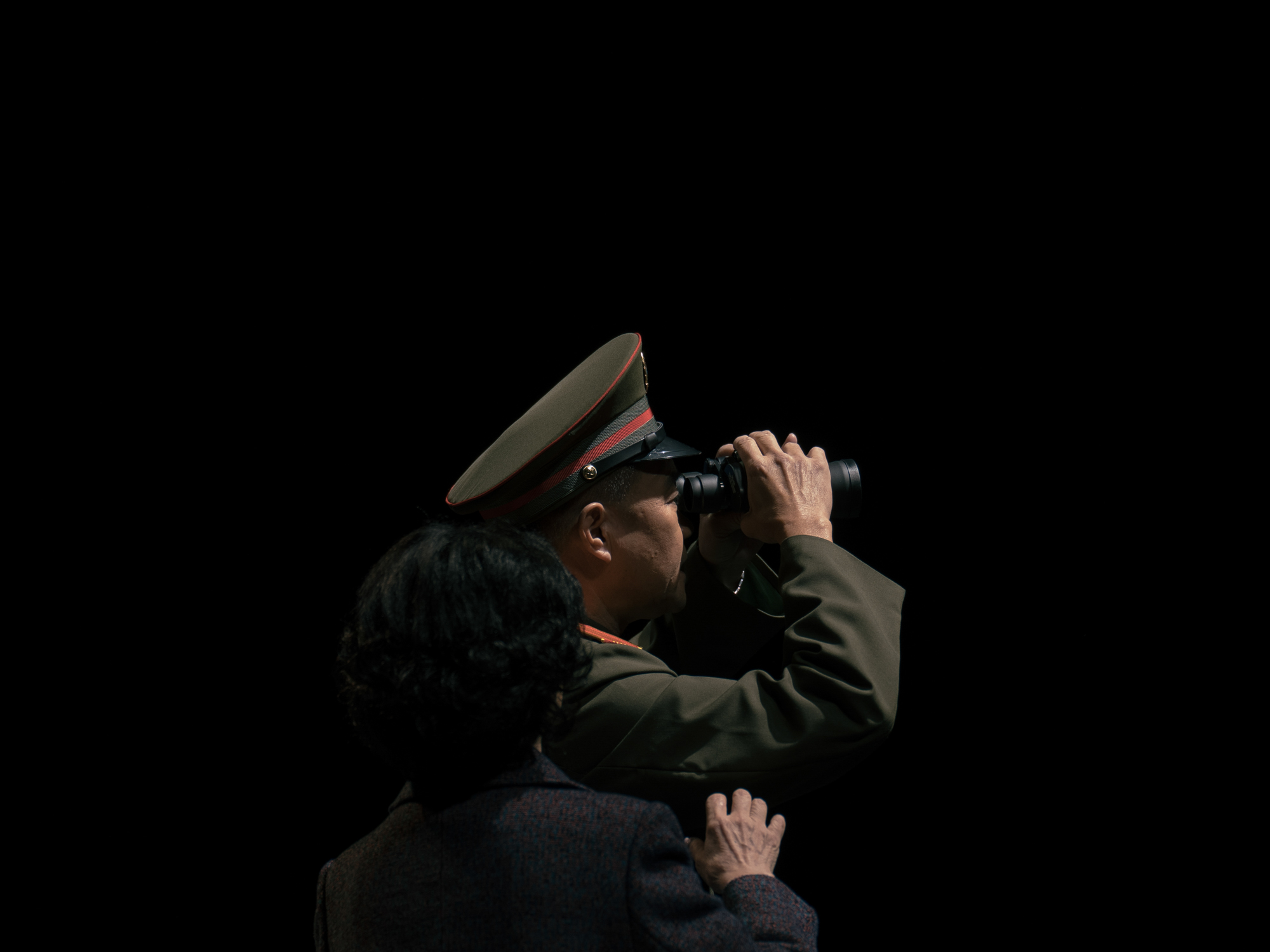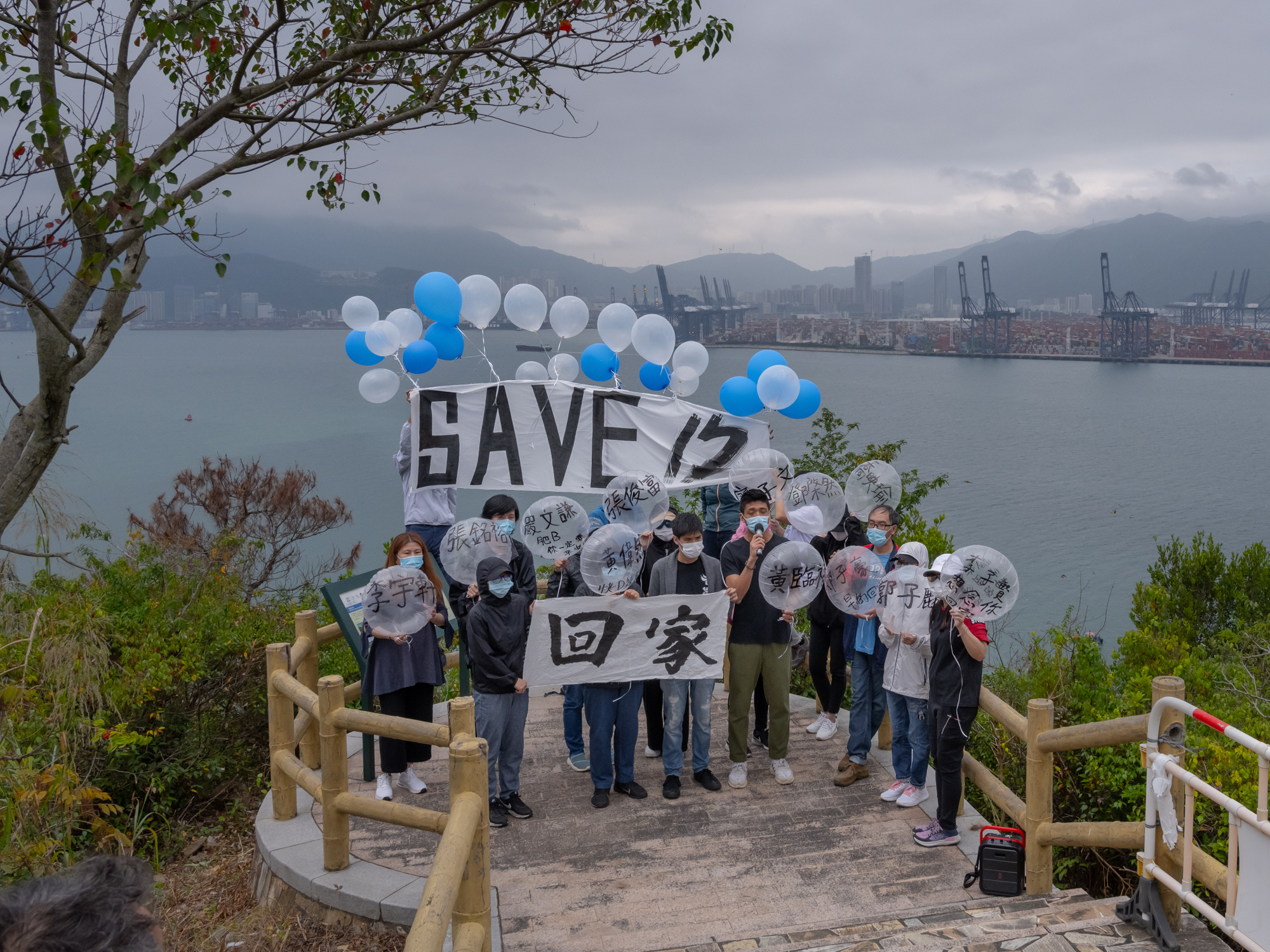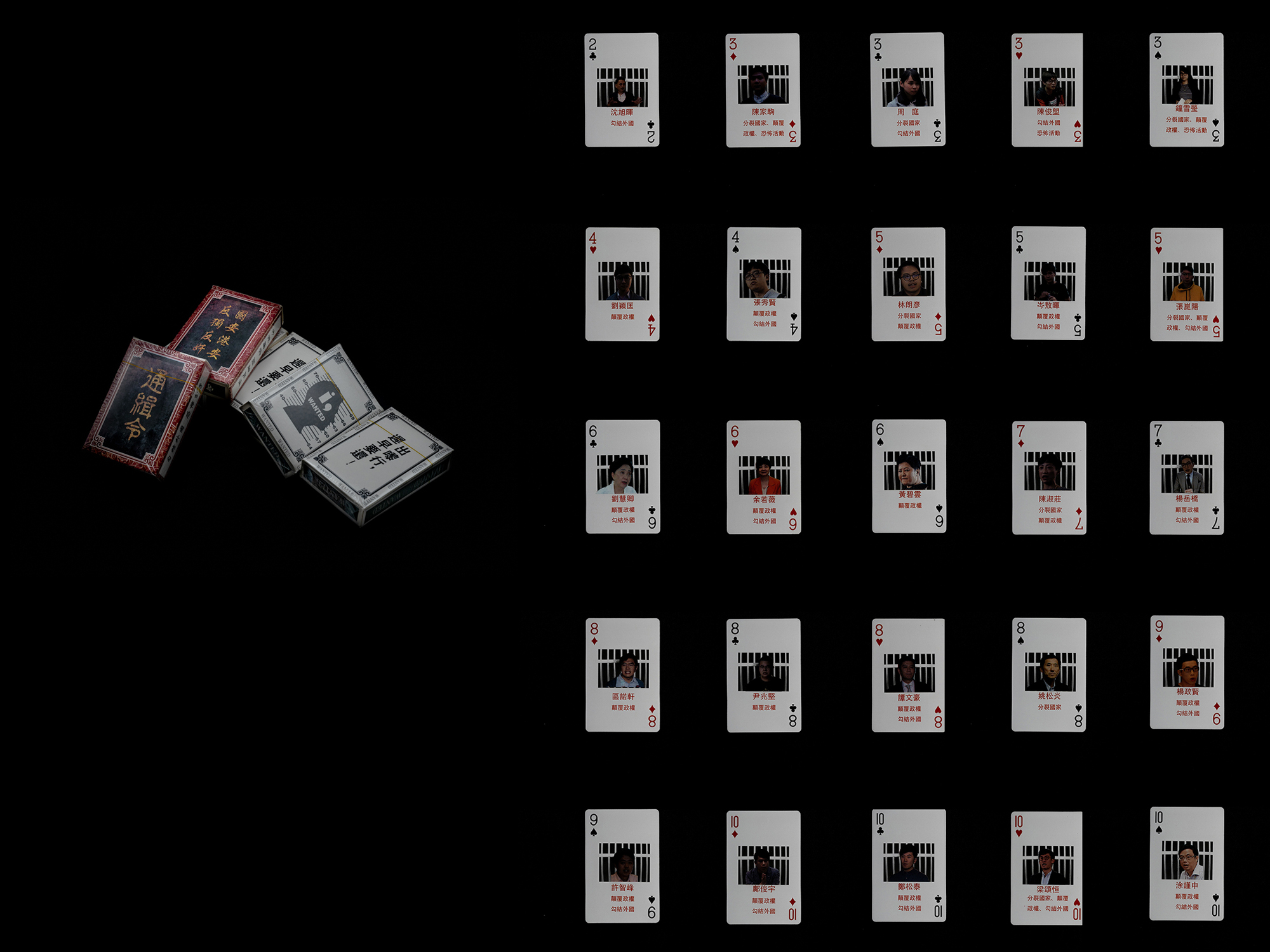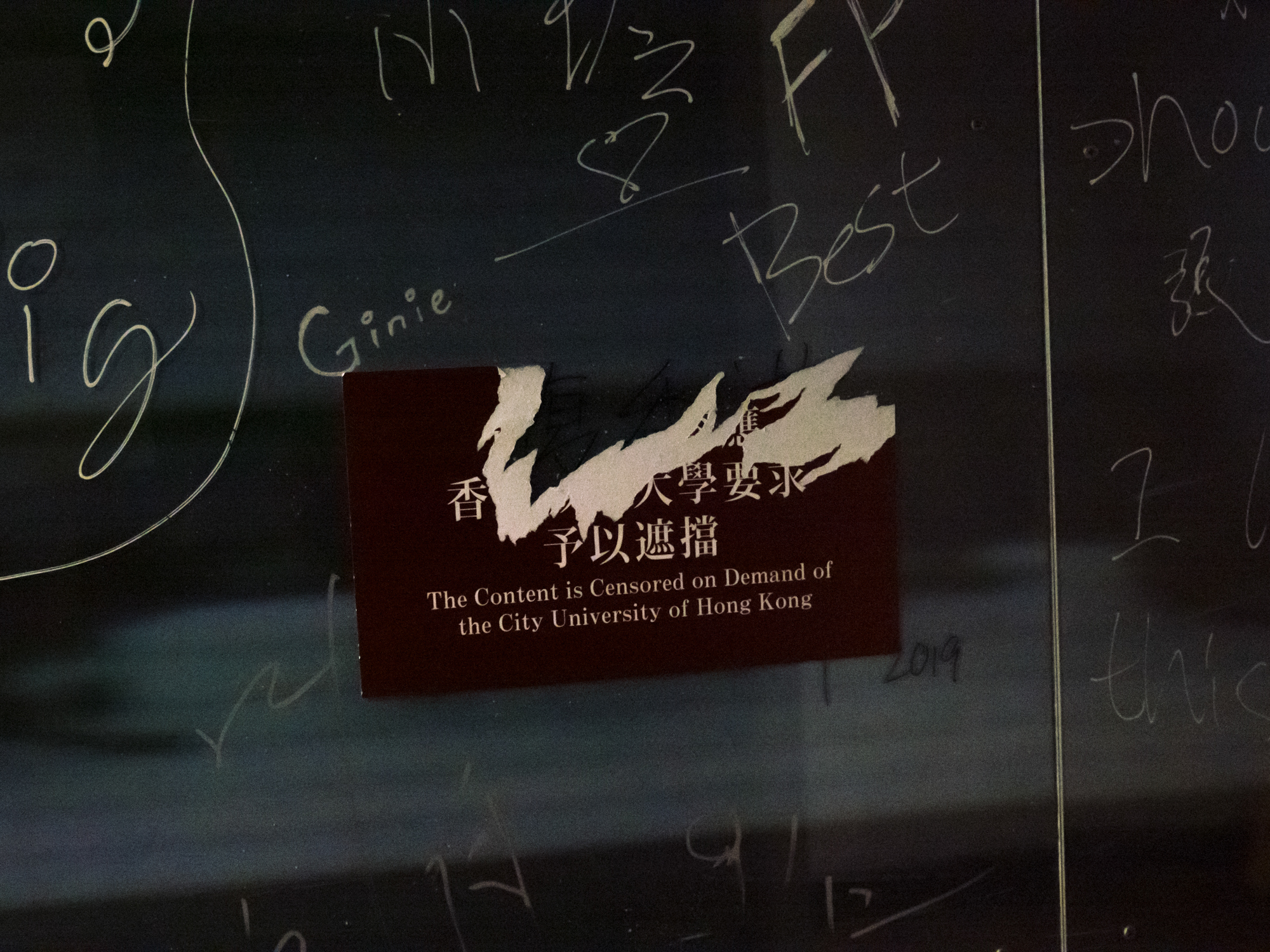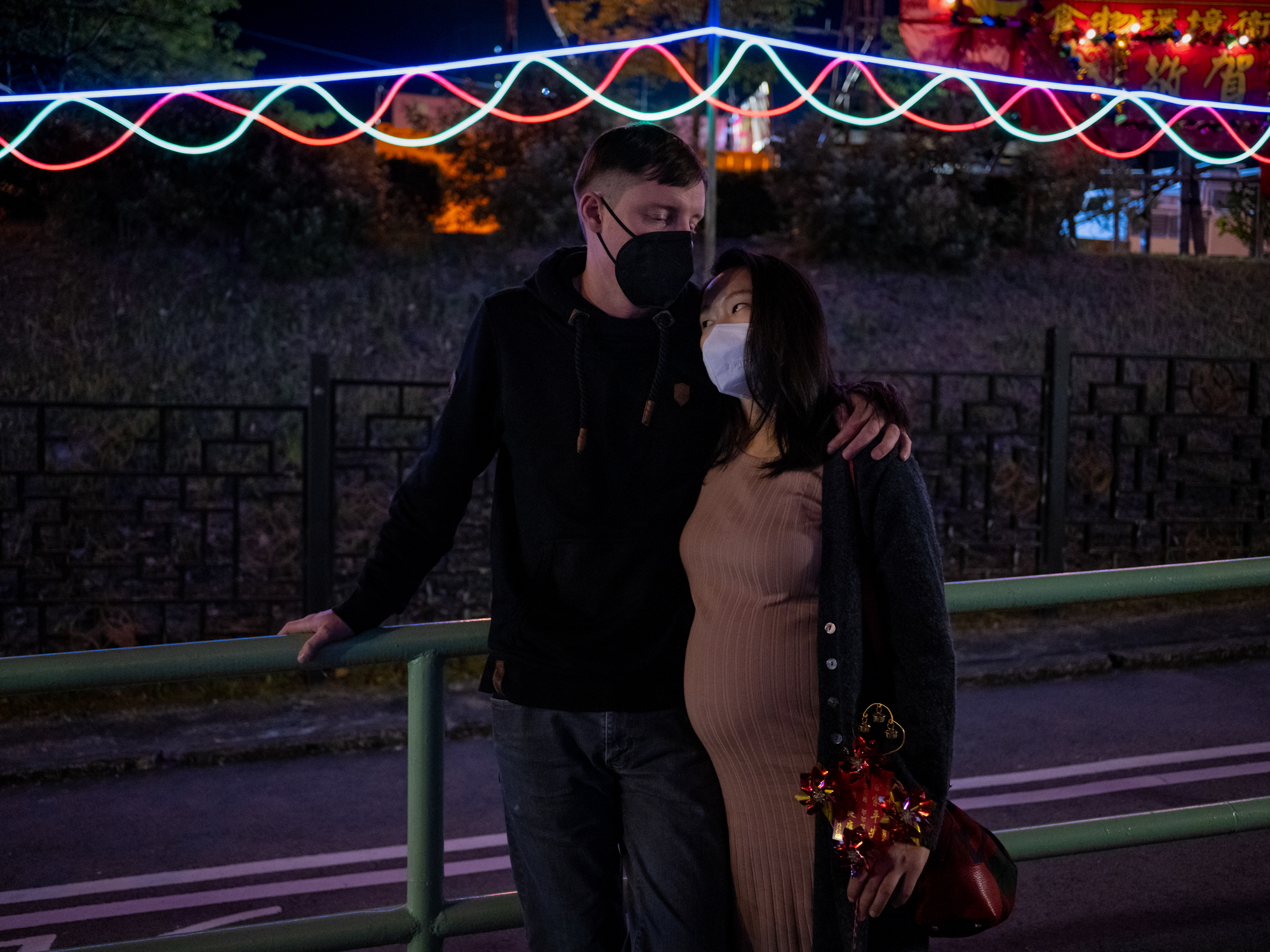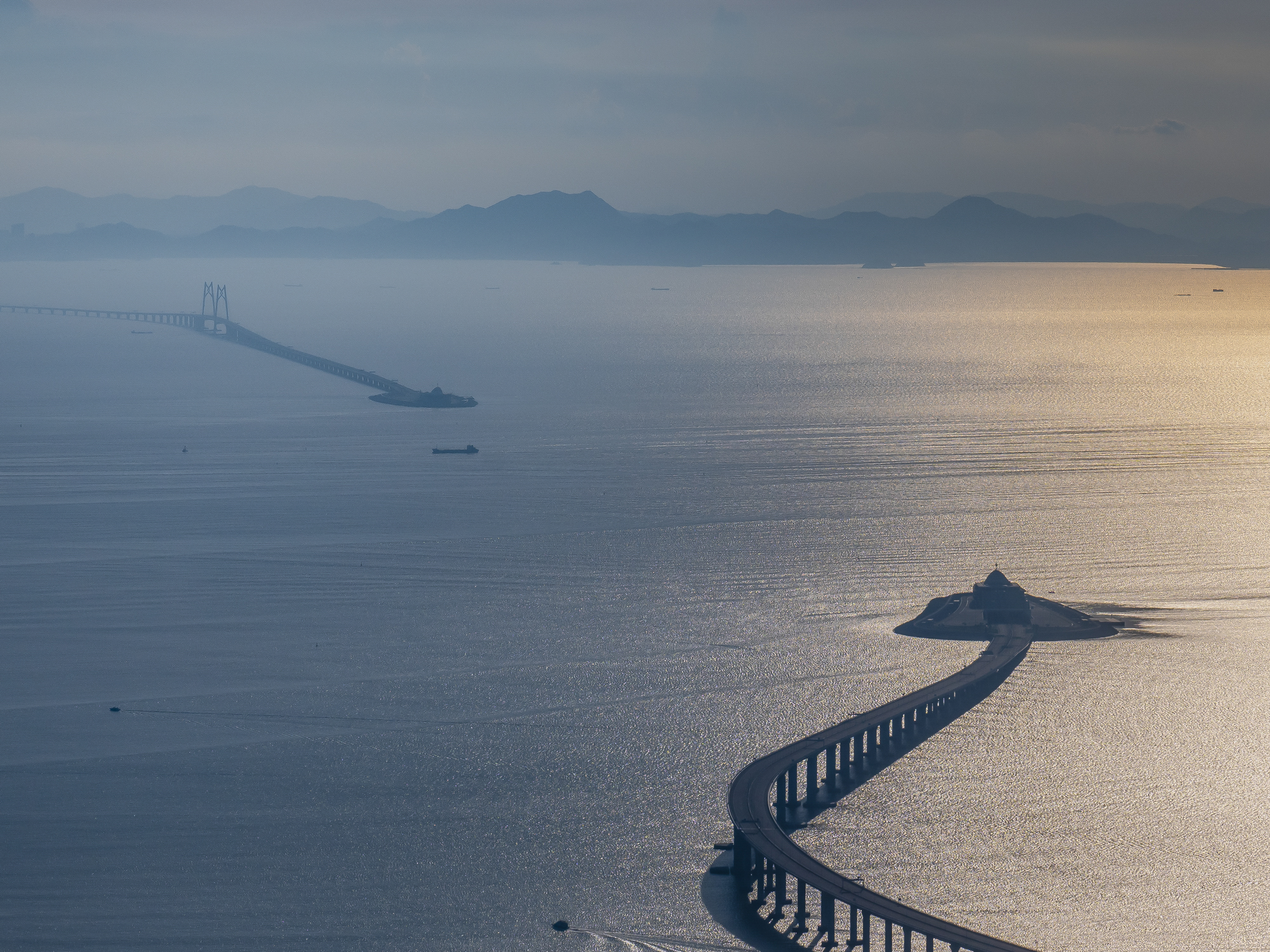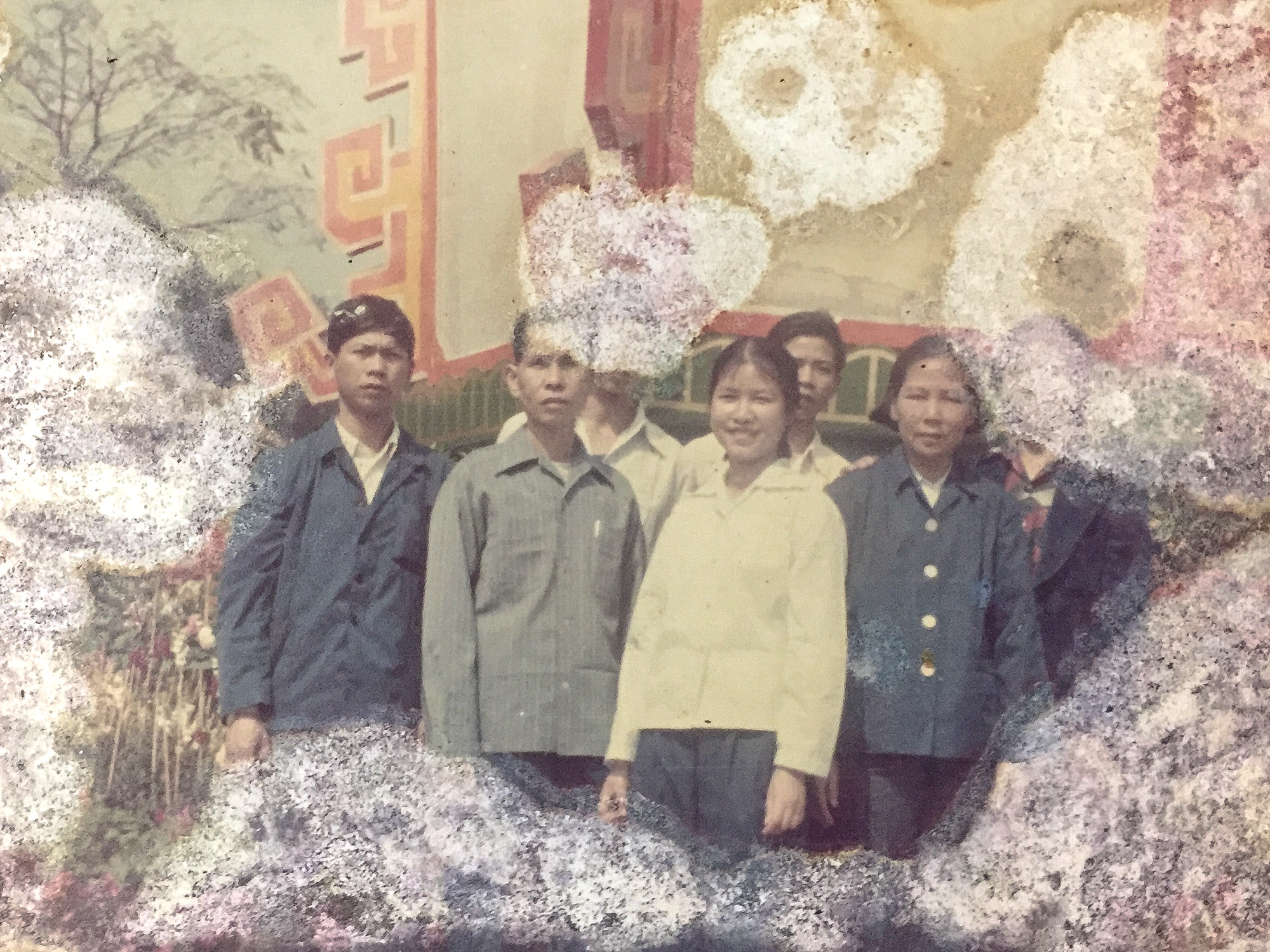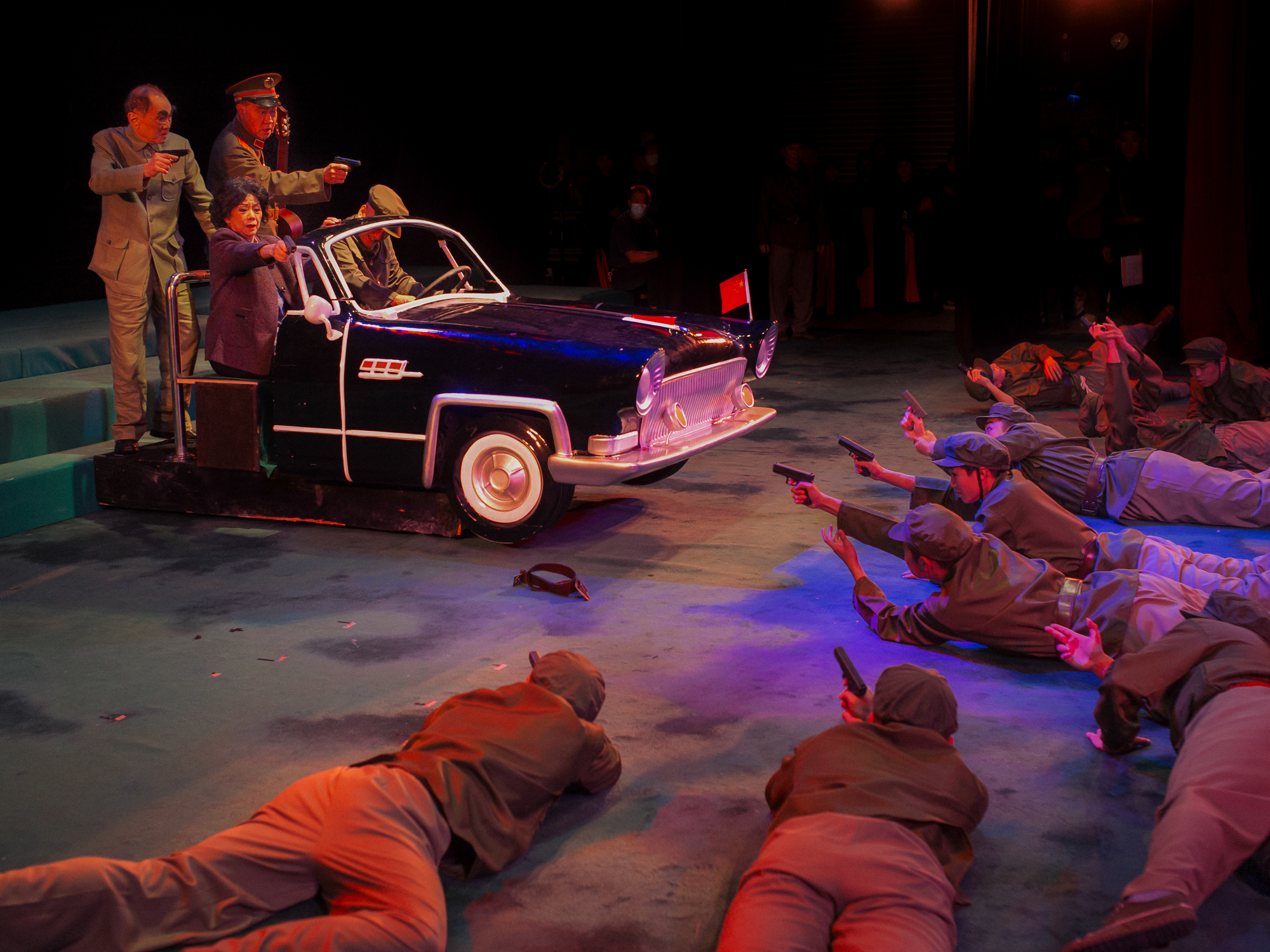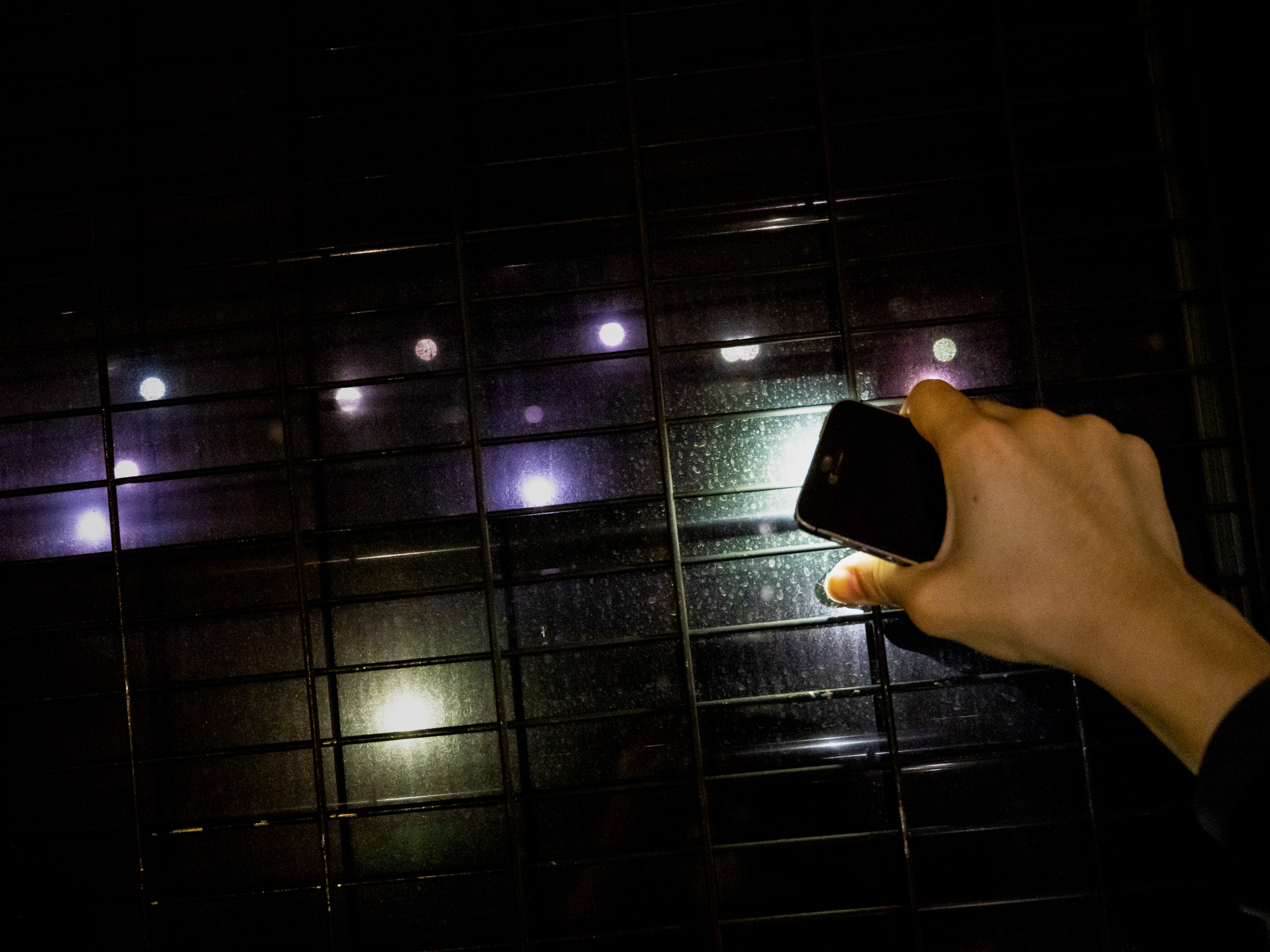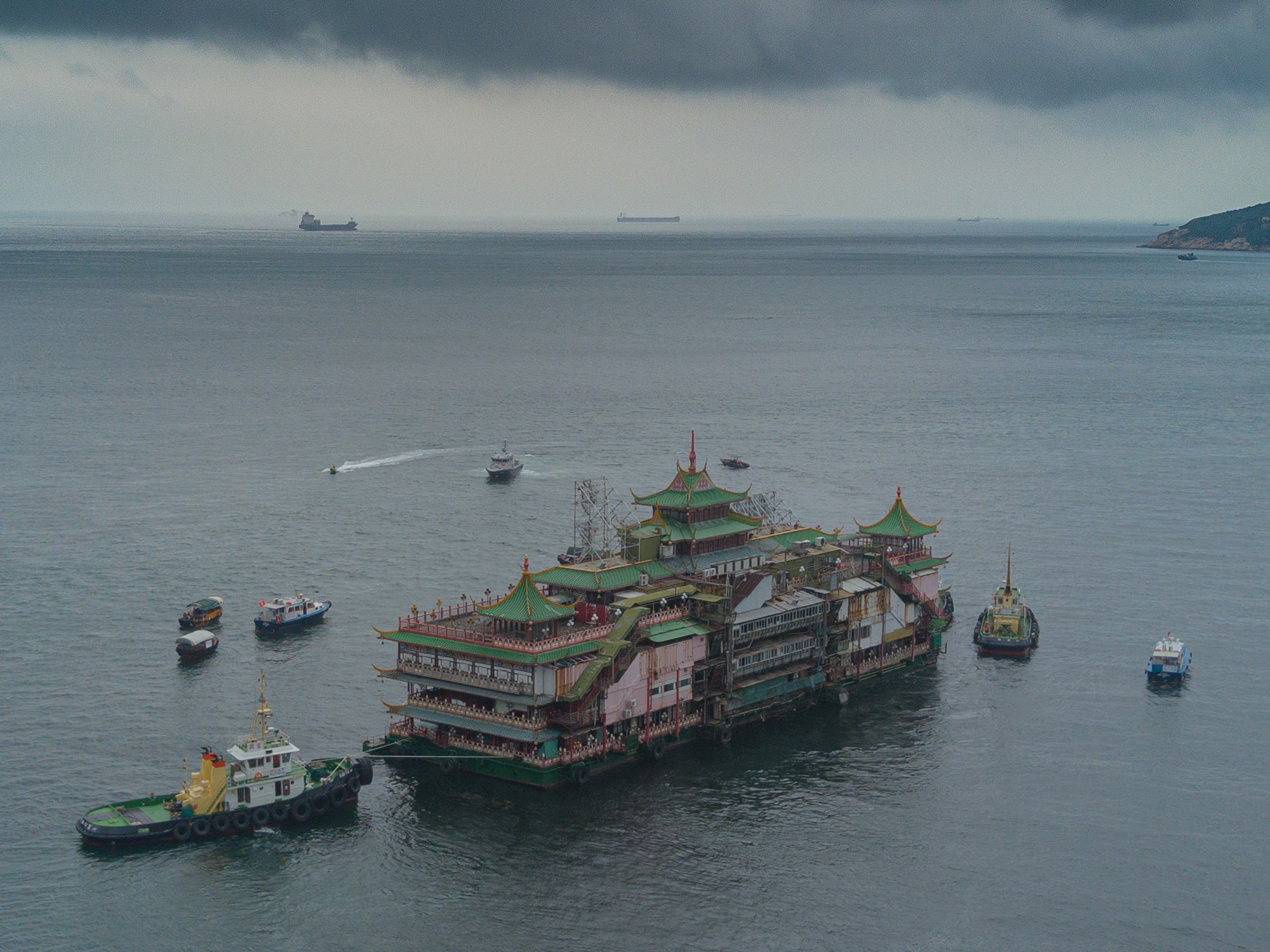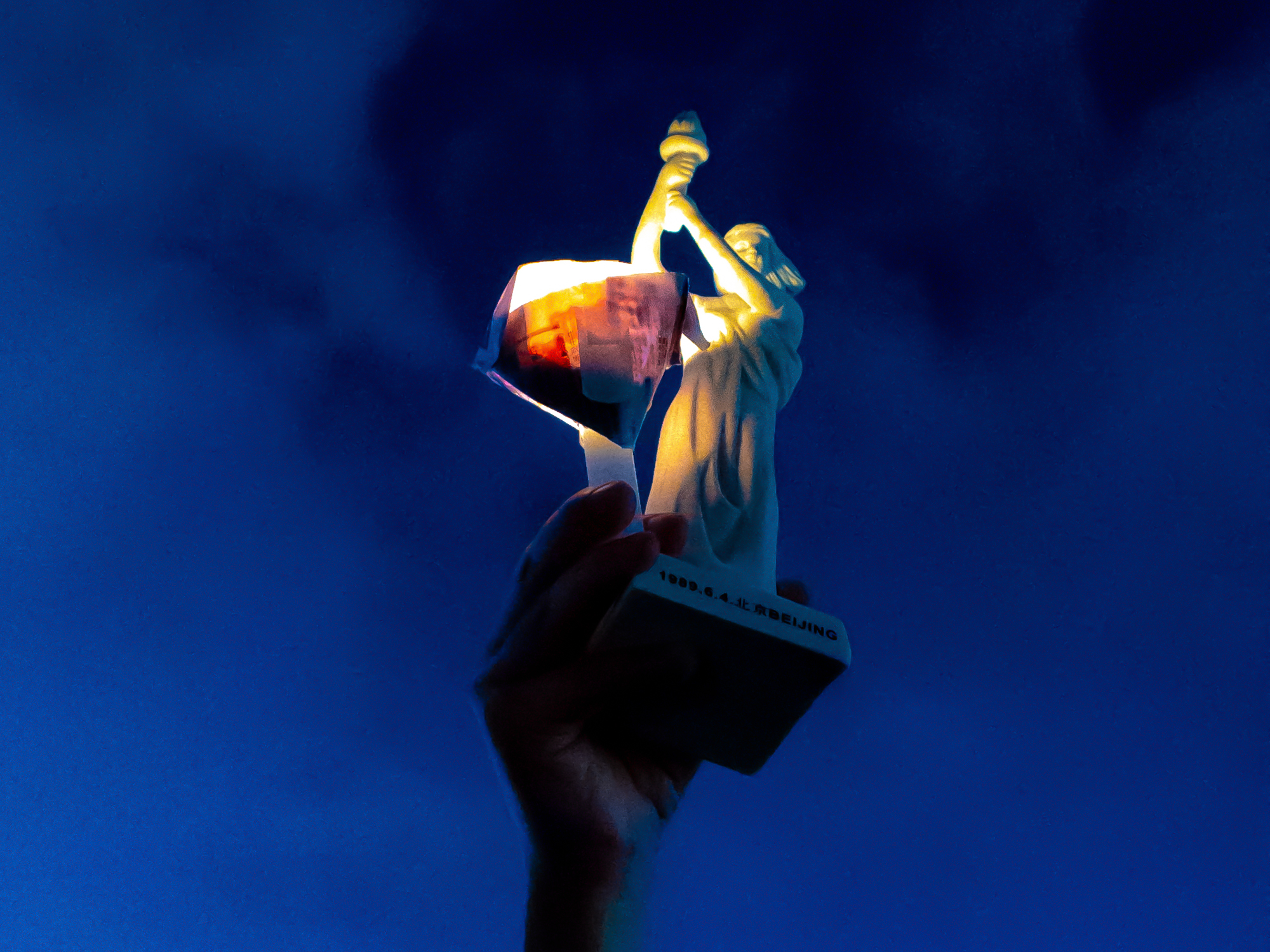Hong Kong photographer Billy H.C. Kwok was eight years old when the United Kingdom handed over control of Hong Kong to China in 1997. Growing up, Kwok witnessed British influence wane and China’s control grow. He has also watched the freedoms promised to Hong Kong under the principle of “One Country, Two Systems” ground down before his eyes, “at first slowly and now all at once,” as he wrote for The Nation in the summer of 2020.
This disappearance impelled him to document the city before Beijing’s encroachment changed its face completely. As a photojournalist for international news outlets, Kwok has captured pivotal moments in Hong Kong’s democratic movements. He reported from the frontlines of the Umbrella Movement in 2014 and documented the 2019-2020 pro-democracy protests, which were sparked by a proposed extradition bill that would have allowed criminal suspects to be extradited from Hong Kong to mainland China. After months of demonstrations, the Hong Kong government eventually withdrew the bill. However, in June 2020, Beijing introduced a sweeping National Security Law, which makes it easier to crack down on and prosecute protesters, activists, and dissidents, essentially ending Hong Kong’s autonomy.
Today, Kwok roams Hong Kong, acutely attuned to the quieter changes reshaping his city.
He finds politics infecting or seeking refuge in everyday objects: a deck of playing cards depicts pro-democracy activists as traitors; pro-independence slogans (now the stuff of criminal charges) appear on the pads of paper shoppers use to test pens in stationery stores; real estate advertisements for “emigration sales” suddenly cover walls throughout the city.
Kwok has also explored the political dimensions of more human stories: a mother’s two-decades-long search for her disabled son who disappeared at a Chinese checkpoint in Shenzhen in 2000; the capture of 12 Hong Kong activists escaping on a speedboat to Taiwan in 2020.
It is through these physical and narrative fragments that Kwok finds “the intersection and collision of humanity and the system.” As he explores the city’s rapidly changing identity, Kwok is also grappling with his own: the son of an immigrant from Guangzhou; a journalist confronting degraded media freedom; and a Hongkonger making sense of what the future may hold. Earlier this year, Kwok spoke to freelance reporter Summer Sun about his wide-angle photographic series documenting Hong Kong’s transition. The interview has been translated from Mandarin and edited for length and clarity.
Summer Sun: Your project explores the changing identity of Hong Kong. What is that identity at present and how has it been changing?
Billy H.C. Kwok: There is a lack of a clear definition of who a Hongkonger is because Hong Kong is a very complicated place. I think the transformation of Hong Kong’s identity is rather a shift in our perception of this identity. Take the “localist” movement. I think [the rationale behind it] is correct. But there arises the question of how far back one should trace one’s ancestral identity—should we go back 100 or 200 years? It is all relative. Sometimes when I am thinking about this question I will look for places in Hong Kong that have a history as long as 700 years. But that is also short compared to the history of China.
Certainly. Different generations might feel a different sense of identity, especially given the many political changes that occurred in Hong Kong over the last century. Some of your family members immigrated to Hong Kong from mainland China. Could you tell us more about that?
My father came from Guangzhou. Because of the Cultural Revolution, he and his siblings were unable to study anymore. They were sent down to the countryside to farm and receive reeducation. They lost everything they owned. Then some relatives immigrated to other countries, and my father came to Hong Kong. I have limited knowledge about my mother's story because her family’s records were not preserved. I know she was born in Hong Kong, but I think her paternal grandfather came from Guangdong. I want to learn more about their lives and gain more understanding of the Hong Kong they lived in. But they are quite reluctant to tell me. When I was growing up, we did not discuss politics at home. My family always observed major events from the sidelines. It was only later when I began college and subsequently became a photojournalist that I started to engage more with politics.
{photo, 54866, 2}{photo, 54881, 2, right}
What motivated you to document changes taking place in Hong Kong?
I had so many questions and wanted to look for answers. I wanted to explore my relationship with my family and their love as a way to understand myself. But when I asked my parents for information, they weren’t willing to share much. I was also very concerned with Hong Kong’s identity. Identity is something very abstract and difficult to imagine. How do you capture that, as a photographer? For me, identity is connected to land and border, and border defines political systems. When I discovered the story of Yu Man-hon, an autistic boy who went missing in Hong Kong, and I interviewed his mother, it clicked. The boy ran off from his mother at a Hong Kong metro station and somehow vanished behind the immigration checkpoint in Shenzhen. His mother went looking for him and had to interact with many Chinese officials and police. The challenges she faced navigating the Chinese system, which she was utterly unfamiliar with as a Hongkonger, spoke to me. It was a shocking event at the time and received a lot of media attention from both sides. I think the case deserves contemplation because of the many ways it reflects the tensions between mainland China and Hong Kong shortly after the handover, and the perception Hongkongers had or began to have of China.
What did Hongkongers think when the news about the boy came out? How did you feel about it?
It was 2000, three years after the handover. People’s first reaction was: “How did a boy with the IQ of a 2-year-old cross over into China like that?” Hongkongers need a “home return permit,” to cross the border. He did not have that document on him. The British had only been gone three years, and we were very sensitive to how people from either side would cross the border. Moreover, since our knowledge of China was shallow, we wondered if we could still find someone after they went to China. This question affected our sense of security. China was a question mark for us. That feeling of helplessness among Hong Kong people was visible in many ways, including in our sense of our identity and our relationship with the political system.
Did the authorities on the Chinese side not help search for the boy?
During the first two years, people searched for him, and the government sent police too, but they were unsuccessful and that was it. Later, the mother received a lot of letters and photos from people from various places in China [claiming to be the lost boy or to have him]. They demanded money and Hong Kong residency status. As children, we were told by our mothers to be careful when crossing the border to Shenzhen. They said many children had been taken away. Through Yu Man-hon’s story, I can get at some of the ideas and impressions that influenced us as children in terms of how we thought about China.
{photo, 54941}
What do you want to express by photographing daily scenes and objects you have collected in Hong Kong?
These objects are everyday things I see around me. They carry many meanings, some political, some personal, and some reflecting my own projection. I am collecting them to assemble a fuller portrait of Hong Kong society. Take the example of the real estate ads that read “Emigration Sale.” There was an emigration wave after the 2019-2020 protests. More people wanted to sell their homes, so more ads like this showed up on the streets. I wanted to record them and let people see this phenomenon. But people can also question the narrative.
{photo, 54946, 2}
There’s also this picture of my university. The university holds a special place in my heart because I attended it for about seven or eight years. After the 2019-2020 protests, the student unions at Hong Kong universities were shut down, because they were seen as a source of rebellion. Campuses were once open and accessible to all, but now they are fenced off. Even alumni like me are not allowed to enter without permission. It’s disheartening on a personal level, but it is also damaging to education and society. While the campus has undergone expansion and has more majestic buildings, the soul of the university is gone. There are no more free students. The free spirit of learning is gone. It feels helpless. That’s the kind of development you see every day in Hong Kong.
How do you grapple with the disappearance of things that were once a part of your life?
It’s unfortunate. That’s why I make an effort to speak Cantonese as often as possible, to document and share more stories of Hong Kong. Because things are disappearing so quickly. Even things that existed just last year have now become history, such as the last commemoration of June 4. In the past, we took it for granted that it would happen every year, so we sometimes didn’t want to attend. Then suddenly it was gone.
How have your working conditions as a photojournalist changed in the past few years?
The changes have been pretty dramatic. Some of the more liberal local media have closed down, and some foreign media have moved their headquarters. You lose your way of making a living if you work in this industry. You lose your power of expression if you are someone who likes to express yourself. Although I don’t think of myself as just a journalist and enjoy working on both news and personal projects, there have been many disappointments in the news industry, and in the general environment. In general, what we say and what consequences it will bring is something we need to consider a lot nowadays. This has become a new norm in Hong Kong, which we are still getting used to. Even in this essay, in my photographs of the pads of paper Hongkongers use to test pens in stationery shops, I found that I felt I had to black out the political slogans they sometimes wrote, because of the political risks entailed in printing those words. But even doing this is a form of documentation. I think the image still has meaning because my act of self-censorship carries a message. When we look back at this period of time, it will offer a glimpse into the changes taking place in Hong Kong society. That said, provided I keep my values consistent, I think my future will be very difficult.
How do you plan to continue documenting Hong Kong given the deteriorating environment?
I am still documenting every day. I carry my camera and my phone with me and take pictures of anything interesting out there. When I have enough photos, I turn them into a series. I still appreciate finding small things in life to turn into art or something with a message.{chop}
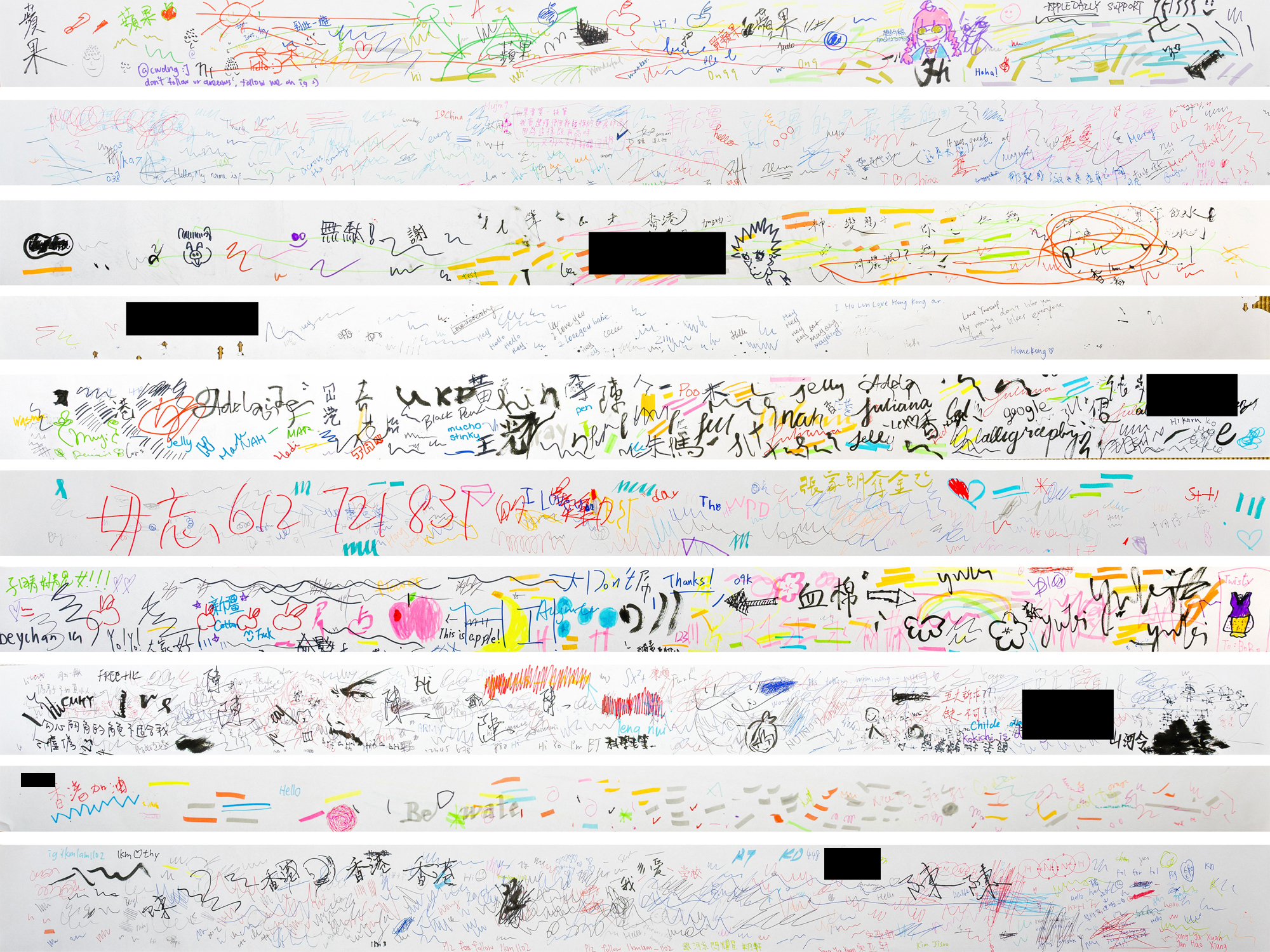 Photo Gallery Billy H.C. Kwok, Summer Sun
Photo Gallery Billy H.C. Kwok, Summer Sun A Portrait of Hong Kong
This story was photographed by Billy H.C. Kwok and written by Summer Sun.





